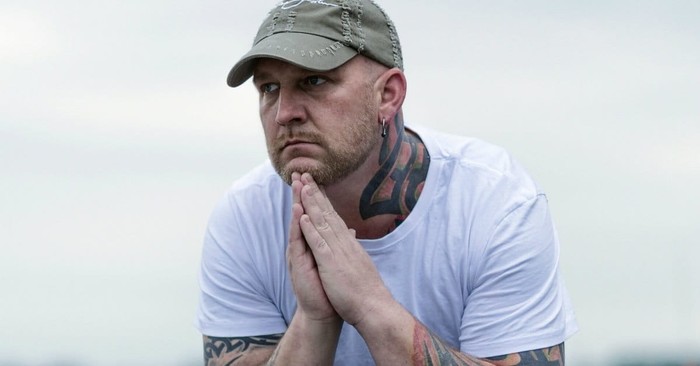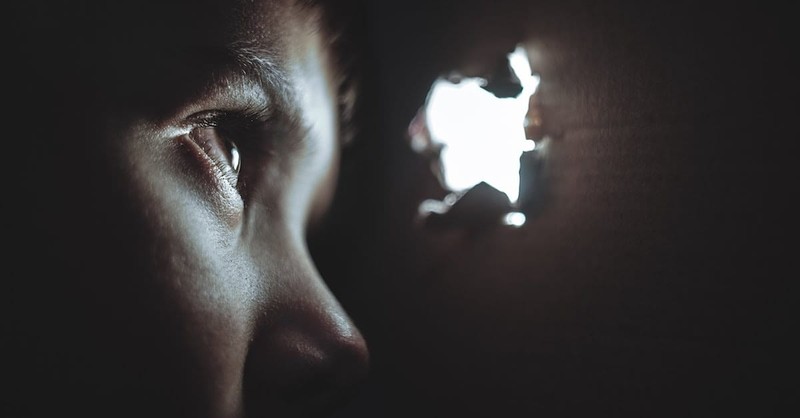
While researching and writing The Masterpiece about two deeply wounded characters, Roman Velasco and Grace Moore, I noticed five ways our past can hold us back:
1. You focus on what has been done to you
Focusing on what has been done to us keeps the experiences alive in our mind, stirring up emotions, reviving hurt, fanning anger and hunger for revenge, as well as making us see ourselves as “a victim.” Thus, we label ourselves as a casualty, a person duped or tricked, a loser and fool, quarry for sacrifice, a scapegoat for another’s sins. Putting on those identity markers is crushing to spirit, and can keep people from taking the first frightening step toward recovery. If we see ourselves as “survivors”—people who suffered greatly, but came through with body and soul alive, heroes who found strength to cope and rise above the sins done to us—we can move ahead.
Photo courtesy: ©Pexels

2. You focus on what you've done.
Focusing on what we've done often fills us with shame and guilt. I know this was the case with me when I spent years looking back at my abortion and the circumstances around it. Though not yet a Christian, I knew and smothered the truth in my heart that I was doing wrong. The "solution to a problem" brought shame and guilt which grew even stronger when I married and became pregnant. My husband and I were excited from the moment we knew I carried a child. When I suffered a miscarriage, we grieved. It struck me then that the baby I aborted was as much a child as the one I wanted. Celebrated from conception or not, a human life is a human life.
How did I overcome the devastating feelings of shame and guilt? 1 John 1:9 says, "If we confess our sins, He is faithful and righteous to forgive us our sins and to cleanse us from all unrighteousness." I confessed, I grieved, and I attended a nine-week postabortion class through a local pregnancy counseling center with other women suffering the same feelings I was. We came out the other side healed. I can testify that God keeps His Word or I would have carried the heavy, heart-crushing secret to my grave.
Photo courtesy: ©Unsplash

3. You rely on conditioned coping mechanisms.
Relying on conditioned coping mechanisms is yet another way we hold ourselves back. I have loved ones who are recovering or active alcoholics. I learned unhealthy ways to cope, alternately mothering, manipulating, managing, and playing the martyr. I knew what was wrong with the alcoholic. He drank a substance that altered his personality. It took time to realize I had a problem every bit as destructive: trying to play God over another person’s life.
What was the answer? I acknowledged I was powerless. I needed to stop trying to fix things and allow God to take over. Continuing to love the person, I learned not to take responsibility for another person’s life. This lesson applies to many situations in life. God is God and I am not. Jesus calls me to self-examination, not to condemnation of others. I am responsible for my thoughts and actions, no one else’s. My work is to realign my life to His will. We all have the sin nature we inherited from Adam and Eve, the desire to control our lives—as well as others. Trusting and relying on God is essential to experiencing life abundant out of what life throws at us.
Photo courtesy: ©Pexels

4. You try to overcome and heal in your own strength.
Trying to overcome and heal in our own strength is one of the more common ways we hold ourselves back. We set our minds on forgetting and moving ahead, sure we can be or do better and make all things right in our own strength. When we find ourselves right back in a similar situation or relationship, we are surprised and demoralized.
A journey through 1 and 2 Kings and 1 and 2 Chronicles in the Bible shows how a nation repeats history. The same is true of individuals. We are not at fault for what has been done to us, but if we fail to examine the past honestly and follow God’s instructions on how to be healed and live a whole and fruitful life, we are complicit in repeating (practicing) the sinful behavior. Holding on to the past often skews everything in our lives, from our relationships with other people to our relationship with God. We are all ultimately responsible for the choices we make.
Photo courtesy: ©Thinkstock/Pra-chid

5. You set up idols.
Setting up idols can be an unconscious or conscious way of replacing God. Idols used to be carved of wood or stone. Now, we idolize celebrities, sports figures, our body image, sex, money, technology. Wherever we spend most of our time and money is our idol. Inevitably, idols crumble. Celebrities and sports figures change with the season. Our bodies grow weak and wrinkled. Economies shift. Money evaporates. Possessions can be stolen or lost in a fire. That new iPhone or entertainment system is obsolete within months of buying it.
Idols offer empty promises. When tragedy or some catastrophic event comes, most people know instinctively to cry out to God. Only He is faithful. The question is: Will we stand firm and abide in Jesus or waver and fall with the first breeze? If we stand firm and seek Him, He will make sure we find Him. And when we do, we will experience the fulfillment of what we long for: real, life-changing, eternal-lasting love.
Photo courtesy: ©Unsplash

Only the Lord has the power to free your heart, mind, and soul.
The past is part of who we are. We need to pray for open eyes and hearts as we examine honestly what happened and what unhealthy patterns or coping mechanisms came out of it. It helps to talk with a wise and faith-grounded mentor.
We all live through trouble and painful experiences, some far worse than others. If we dwell on those things, we make ourselves captives. When we make excuses, defend ourselves, trust in our own strength and ability to outwit or outrun the enemy of our souls, we lose. The truth is only the Lord has the power to free one’s heart, mind, and soul. Only He can be trusted to bring beauty from ashes, light from darkness, and open our eyes to see our past as a part of who we are while setting us free to live the beautiful, abundant life He planned for us.
When we give our lives fully to Jesus Christ, we begin the journey to becoming the person He created us to be. We are God’s masterpiece, created anew in Christ Jesus for good works which He has already prepared for us. He is our true Father and our real home is with Him, now and forever.
Photo courtesy: ©Unsplash
 New York Times bestselling author Francine Rivers returns to her romance roots with this unexpected and redemptive love story, a probing tale that reminds us that mercy can shape even the most broken among us into an imperfect yet stunning masterpiece.
New York Times bestselling author Francine Rivers returns to her romance roots with this unexpected and redemptive love story, a probing tale that reminds us that mercy can shape even the most broken among us into an imperfect yet stunning masterpiece.
Francine Rivers has published numerous novels—all bestsellers—and she has continued to win both industry acclaim and reader loyalty around the globe. Her Christian novels have been awarded or nominated for many honors, and in 1997, after winning her third RITA Award for inspirational fiction, Francine was inducted into the Romance Writers of America Hall of Fame. In 2015, she received the Lifetime Achievement Award from American Christian Fiction Writers (ACFW). Francine’s novels have been translated into over 30 different languages, and she enjoys bestseller status in many foreign countries. She and her husband, Rick, enjoy spending time with their children and grandchildren.
Originally published Monday, 31 August 2020.








